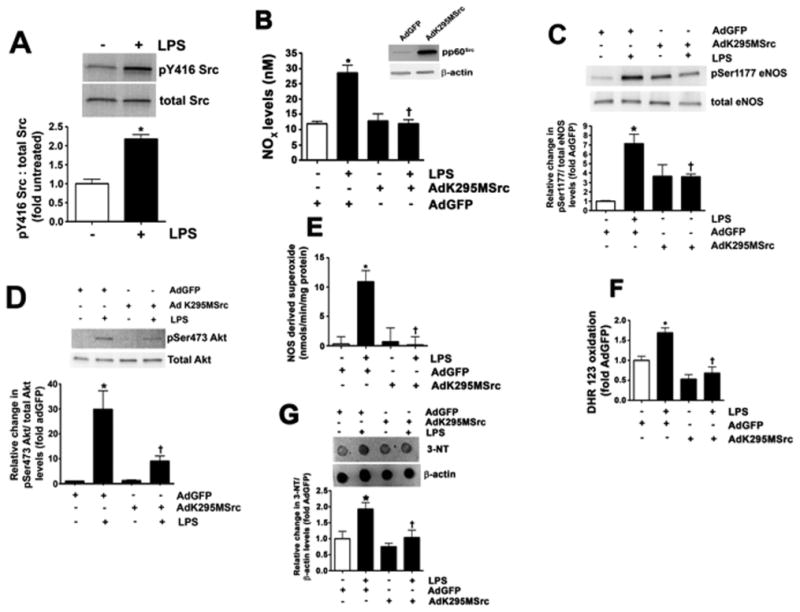Fig. 1.

The over-expression of a dominant negative pp60Src stimulates eNOS uncoupling in pulmonary arterial endothelial cells. PAEC were exposed to LPS (1000 EU/ml; 4 h). LPS increased pp60Src activity as measured by increase in its phosphorylation at Y416 (A). PAEC were also transduced with an adenovirus containing either a dominant negative pp60Src (AdK295MSrc) or GFP. After 48 h the cells were challenged with LPS (1000 EU/ml; 4 h). LPS increased NO generation (B) and this correlated with an increase in p-Ser1177 eNOS (C) mediated via Akt1 as indicated by increased p-Ser473 Akt1 levels (D). All these effects were attenuated by AdK295MSrc over-expression (insert, panel B). AdK295MSrc also attenuated the LPS mediated increase in NOS-derived superoxide as estimated using EPR (E). LPS also increased peroxynitrite generation (F) and 3-nitrotyrosine (3-NT) levels (G). These effects were again attenuated by overexpression of AdK295MSrc. Values are mean ± SEM, n=3–6, *P < 0.05 vs. untreated; †P < 0.05 vs. LPS.
